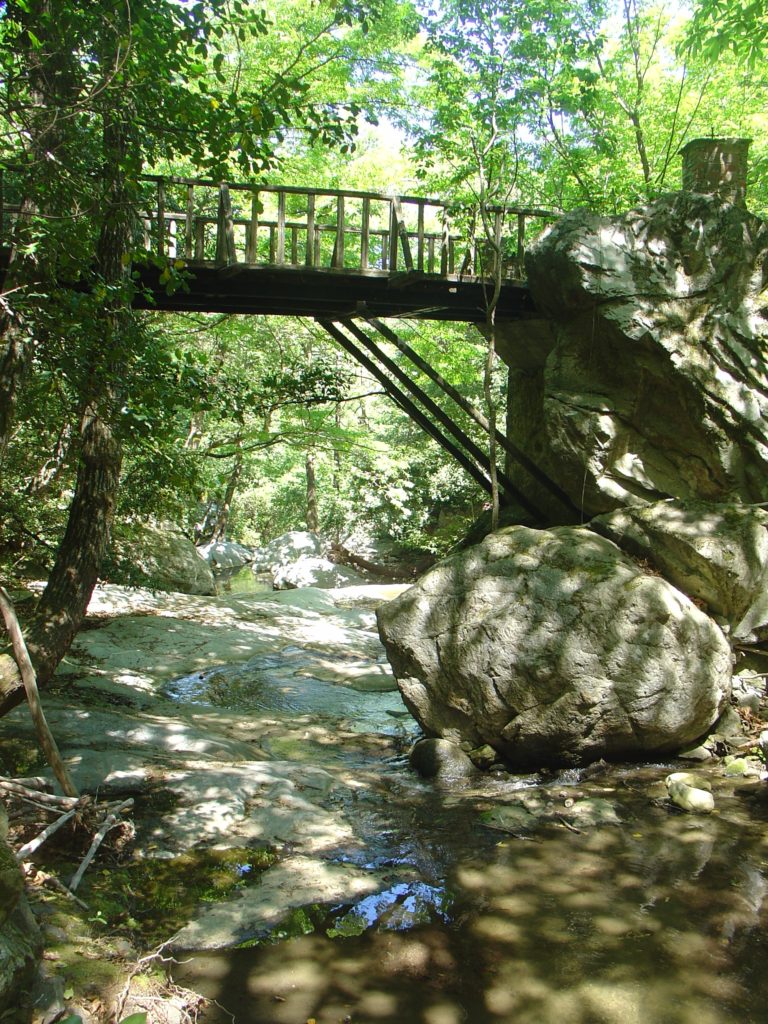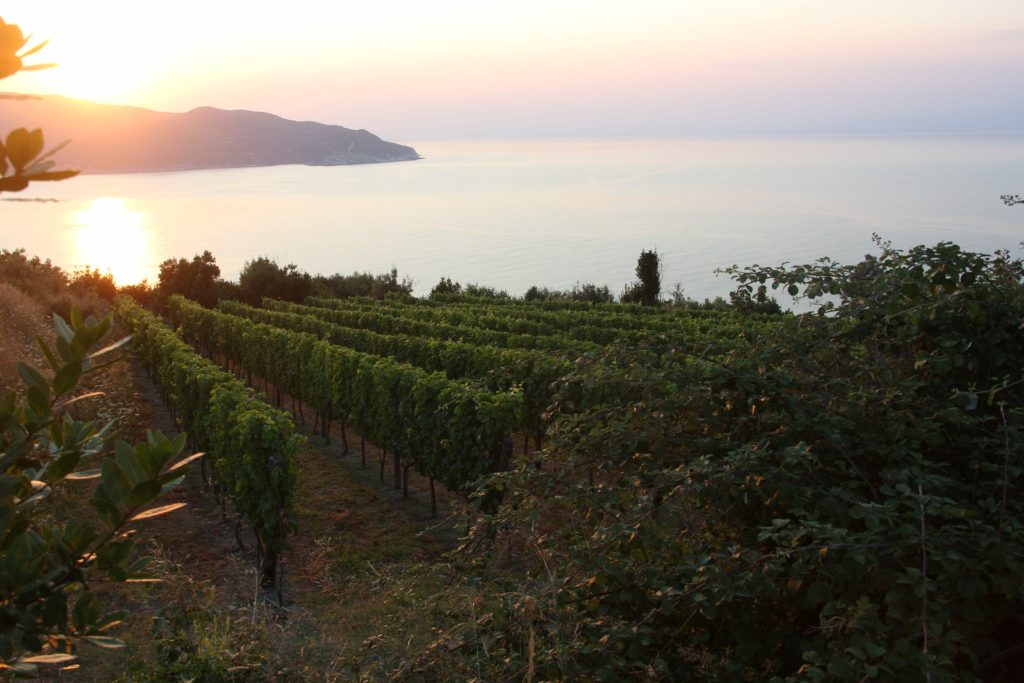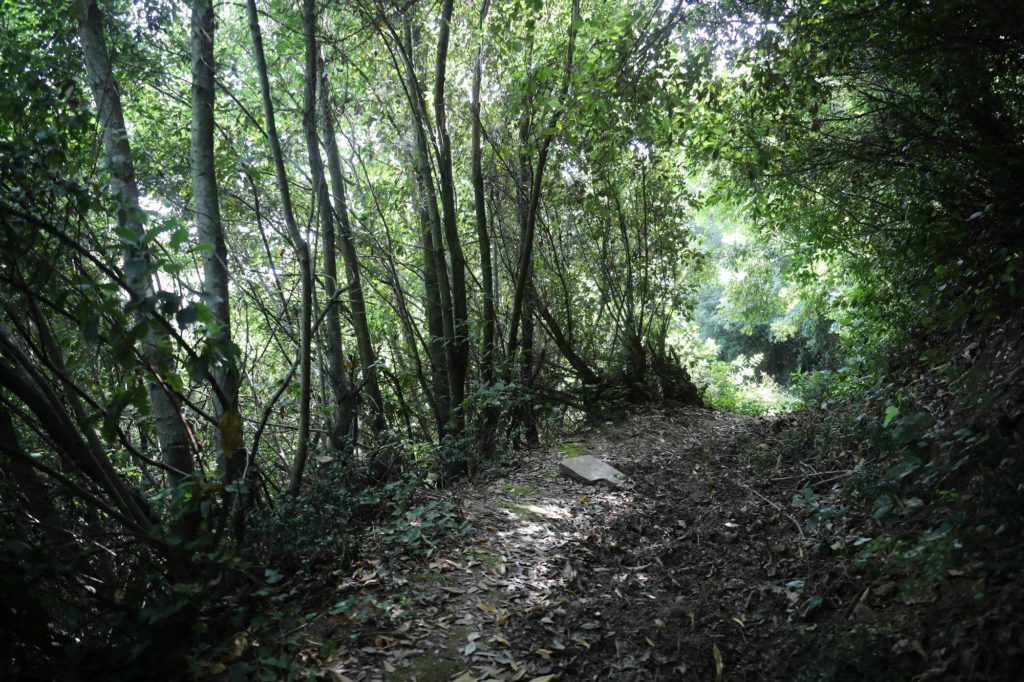The cultural heritage of the Holy Mountain is not limited to the wonderful examples of architecture and the unique treasures in the Holy Monasteries, Sketes and Kellia, but also extends to the incomparable and unrivalled natural environment. The Holy Mountain is now one of the very few areas with virgin, wild vegetation and a great variety of flora, since it has been untouched by the contamination of heavy industry.
HGM Vatopaidi is among the Monasteries which have performed important work in the cultivation of the land and the production of natural products linked either to nutrition or health.

The area surrounding the Monastery is one of the most fertile on Athos. Its flora consists of more than 1471 kinds of the plants to be found on the Holy Mountain. The highest zones in the area (more than 5000 metres above sea-level) are covered with forests of chestnut and broad-leafed oak, with the occasional holm-oak and maple, all of which are harvested for lumber. At the lower levels and along the coast there are evergreen and broad-leafed trees and bushes, particularly holm and kerkes oak, while next to the Monastery there are cultivated areas. The Monastery’s areas under cultivation on the Mountain are attested from Byzantine times and they provide produce which is necessary for worship and the daily nourishment of the monks (wheat, oil, wine, vegetables, fruit and so on).
The arable land belonging to the Monastery extends over 1,100 stremmas (272 acres) and has been cultivated since ancient times. We might mention the traditional vegetable gardens, the fruit trees, the olive-groves with their old terraces, which date to the 8th century, the vineyards and the herb beds. Everything produced by the Monastery is organic.
Over time, the Monastery has acquired great experience and expertise in creating products which are based on traditions and on the study of manuscripts more than a thousand years old. Among these manuscripts some survive which describe the properties of various herbs. They contain many cures and also describe the way the herbs were used back in the depths of time.
With the contribution of modern technology, studies and research are being carried out on these ancient practices. These confirm the beneficial action of herbs as produced by nature’s pharmacy. These investigations have resulted in the production of a variety of natural products, such as traditional ointments, moisturising creams, soaps, shampoo, nutritional supplements and so on which are produced with the aim of preventing relieving, reducing or even curing many health problems.

Products and cosmetics from the rich soil of the Holy Mountain.
Traditional products
From the rich soil of Vatopaidi and with the meticulous care of the monks, the wine from the Monastery vineyards, the oil and olives from the scattered groves, the preserves from the creative and pristine kitchens, and the pure honey are some of the best products made by the Monastery for people today.
Nutrition meets tradition. Monastery products such as pasta and trahanas, made from pure ingredients, without preservatives, without additives or colouring, produced with natural ingredients in a traditional manner handed down from olden times. Sweets and jams made from traditional recipes, without preservatives and from fresh fruit, as well as traditional drinks.
Nature’s pharmacy
The curative power of nature is beyond doubt. The Monastery makes a range of natural toiletries with therapeutic properties, produced from natural raw materials: olive oil, herbs such as Saint John’s wort, dandelion, aloe, lavender, chamomile, calendula, nettle and pure beeswax. The Monastery’s cosmetic products are guaranteed organic in terms of provenance and composition and of proven efficacy in terms of face and body care.

It is this thousand-year old tradition and experience which we would like to pass on to people today through our activities, since they are seeking better quality in nutrition and daily well-being. We also feel that it is very important to learn this tradition and then hand it on to the younger generation, especially those who wish to become involved, through research and training programmes, with the cultivation of the land and its products. We also consider it important to be involved with human health and the treasury of plant-based products through herbal research, by means of the formation of groups of botanists, seminars on land cultivation, programmes for the protection of the environment and so on.